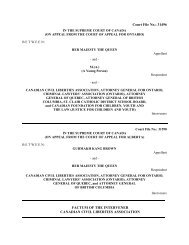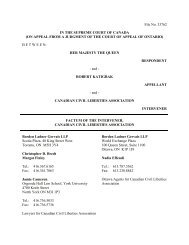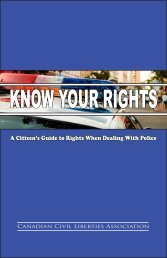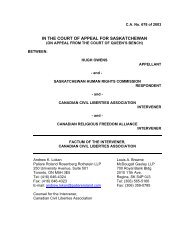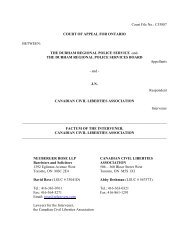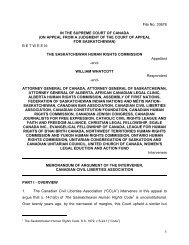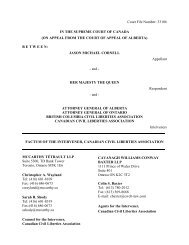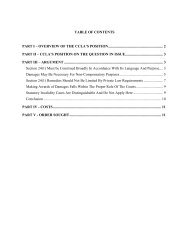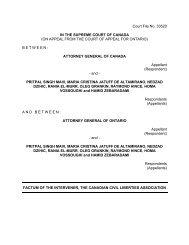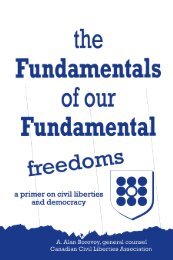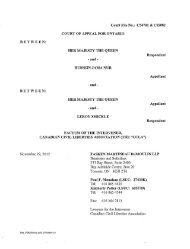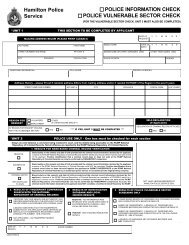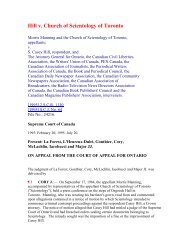FACTUM OF THE CANADIAN CIVIL LIBERTIES ASSOCIATION
FACTUM OF THE CANADIAN CIVIL LIBERTIES ASSOCIATION
FACTUM OF THE CANADIAN CIVIL LIBERTIES ASSOCIATION
You also want an ePaper? Increase the reach of your titles
YUMPU automatically turns print PDFs into web optimized ePapers that Google loves.
- 5 -<br />
the course of newsgathering activities, and (3) under a promise that the journalist will<br />
protect the confidentiality of the source. These three elements are derived from the<br />
Charter's protection of newsgathering, but are nonetheless analogous to the first two<br />
elements of the Wigmore test. If they are met, a s. 2(b) privilege arises.<br />
15. Once the journalist establishes a prima facie privilege under s. 2(b), the<br />
burden shifts to the Crown to justify the breach under s. 1. Under the second step of the<br />
CCLA’s approach, the government has the burden to demonstrate that the state’s interest<br />
in gaining access to the privileged information outweighs the Charter interest in<br />
protecting the journalist-source privilege.<br />
16. In the remainder of this factum, the CCLA will elaborate on the two steps<br />
of the test set out above. Before doing so, it should be noted that the CCLA does not<br />
consider who is a journalist, for purposes of a journalist-source privilege under section<br />
2(b), as the issue does not arise here and it is unnecessary to address it in this appeal.<br />
Section 2(b): Establishing the Privilege<br />
17. As mentioned above, the constitutional status of newsgathering and the<br />
importance of journalist-source confidentiality to the newsgathering function make the<br />
journalist-source relationship a distinctive one for Charter purposes. Charter rights<br />
demand Charter protections.<br />
18. Any attempt to violate the confidentiality of a source threatens<br />
newsgathering and therefore breaches s. 2(b). Every exposed source – no matter what the<br />
context is – will make the next source less willing to come forward. A breach of<br />
journalist-source confidentiality may still be justifiable in particular cases, such as where<br />
a confidential source in a position of power deliberately misleads a journalist in order to<br />
manipulate public opinion. However, that analysis must satisfy the requirements of s. 1<br />
in order to protect the constitutional interests at stake.<br />
19. Journalist-source privilege is therefore distinguishable from other cases<br />
where courts have ruled that Wigmore applies to the question of privilege. In R. v.<br />
Gruenke, for instance, this Court considered a claim to privilege by a woman who<br />
Tor#: 2307997.8



